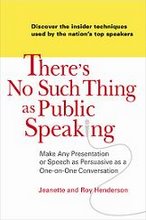In the heat of the debate over border security, immigration, and assimilation, the last thing this country needs is to have more fuel poured onto the fire by a British music producer releasing a Spanish language version of "The Star-Spangled Banner".
Those citizens of the United States who have been quietly standing by, waiting to see what side of these intertwined issues our legislators will fall, will no longer be able to stay out of the fray. Even the most uninvolved will likely become outraged at the whole idea of our national anthem being re-written to suit the desires of what is still a minority in this country. The path forward from here has become even more treacherous than before.
Yes, we are a country of immigrants. Yes, we are grateful our ancestors took the dangerous trip to get here. But by and large, when they got here, they checked in at Ellis Island or some other port of entry, were registered, checked for disease, had to prove they could support themselves and their families, and received papers that made them legal. Then they went on to do their best to assimilate to this country, and to make sure their children assimilated to this country. That began with learning English, the language of the land and of the opportunities that waited for them here.
Those members of the Hispanic community who have suffered that same struggle should be applauded and welcomed into our rich immigrant history. They should be congratulated for resisting temptation, and for abiding our laws to the letter. They should not be discriminated against because of their heritage, their looks, or their language. Unfortunately, they cannot help but be tainted by the brush of those who have cheated the system by slipping over the border in the dark of night, and who are forced remain in the shadows. Those illegals do themselves, the legal Hispanic community, and this country a huge disservice, and will undoubtedly be dealt with much more strongly than they have been in the recent past.
This is not a fight most of us wanted. As long as the illegals remained quiet it was easy to leave them alone, easy not to enforce the laws, easy to pay less at the grocery store as a result of their field labor. Now, however, as they increasingly flaunt our laws, behave as though the mere fact that they are here gives them the same rights as an American citizen, and now, to try to change our culture to suit them, rather than assimilate as our ancestors did, there’s no more standing at the sidelines.
Americans who didn’t have an opinion before will surely have one now, and the result won’t be pretty. When you wave a red flag at a quiet bull, what do you expect?
Friday, April 27, 2007
Subscribe to:
Post Comments (Atom)


1 comment:
Jeanette, FYI (b/c I do agree with much of what you say here)-- we've actually had a Spanish-language national anthem for almost a century now. The USA itself-- department of the National Archives IIRC-- commissioned a Spanish version of the national anthem around 1919 or so, the idea being to express the national ideals to the longstanding Spanish community in Texas and elsewhere.
It's called "La bandera de las estrellas" and it was written as a translation in the early 1900's by some fellow named Francis Haffkine Snow-- http://memory.loc.gov/cocoon/ihas/loc.natlib.ihas.100000007/pageturner.html?page=1§ion=
That being said, the version that the British guy designed really isn't the anthem at all-- it's an entirely new song with some iffy aspects to it, to say the least.
But as far as a "Spanish Star-Spangled Banner" itself, that's been around for a very long time already. I heard it myself in Arizona a few years ago, well before the current brouhaha had gotten started. (It's also been translated into German and, according to one of my friends, some of the Americans who serve on US bases in e.g. Germany and have settled there, like to sing the German version of it.)
I have mixed feelings about the whole thing, the way the Spanish version has become so prominent.
But truth be told-- as I learned myself the hard way many years ago when I was job-hunting in Arizona-- Spanish has been spoken here for many, many centuries, before English came along. I wasn't able to get a job in my field without it. I resisted for a while, but I realized that's just the culture of the region, the same sort of way that it is for Puerto Rico (whose people are also American citizens). That's why it's hard to compare the current situation to the Ellis Island analogy of the late 1800's or so. The Ellis Islanders were clearly guests and newcomers without a prior presence here. Whereas there's been a presence of Hispanics and their culture here for a very, very long time. It's awfully hard to tell them to "be like other immigrants" when at least a lot of them preceded us here.
All this being said, I'm not as pessimistic about the future as a lot of people are. Even though Puerto Ricans for example are Spanish-speaking American citizens, for example, they serve in the military at a higher rate than most Americans and are overall pretty patriotic. Same goes for most Hispanics I've met in Arizona-- quite patriotic, proud of the Founding Fathers and the Constitution, eager to serve in the military.
Even willing to support quite a few conservative causes.
The reality is, the Spanish that they use is here to stay, and it's been here for centuries already. But it does sound like the concepts at the heart of what founded the country, the anthem itself, even conservative principles and respect for the free market can work the same in Spanish as in English.
Even if Spanish itself is a permanent part of the landscape in much of the country, so long as there is a common language of respect for freedom and conservative, free-market principles in Spanish just as there is in English-- I can live with that.
In fact, if there is one encouraging sign, at a Republican fundraiser I worked at a few months ago, there were quite a few Hispanics-- from many different occupational stripes and religious denominations-- who were vigorously debating issues, in Spanish, yet clearly formulating principles that were consistent with our philosophy. And they supported and continue to support us.
IMHO, we shouldn't worry too much about the medium in which our ideas are expressed, especially since Spanish has been around here for so long. It's more important to focus on the content of the ideas themselves, which can take hold in many languages and widen our support base.
Post a Comment